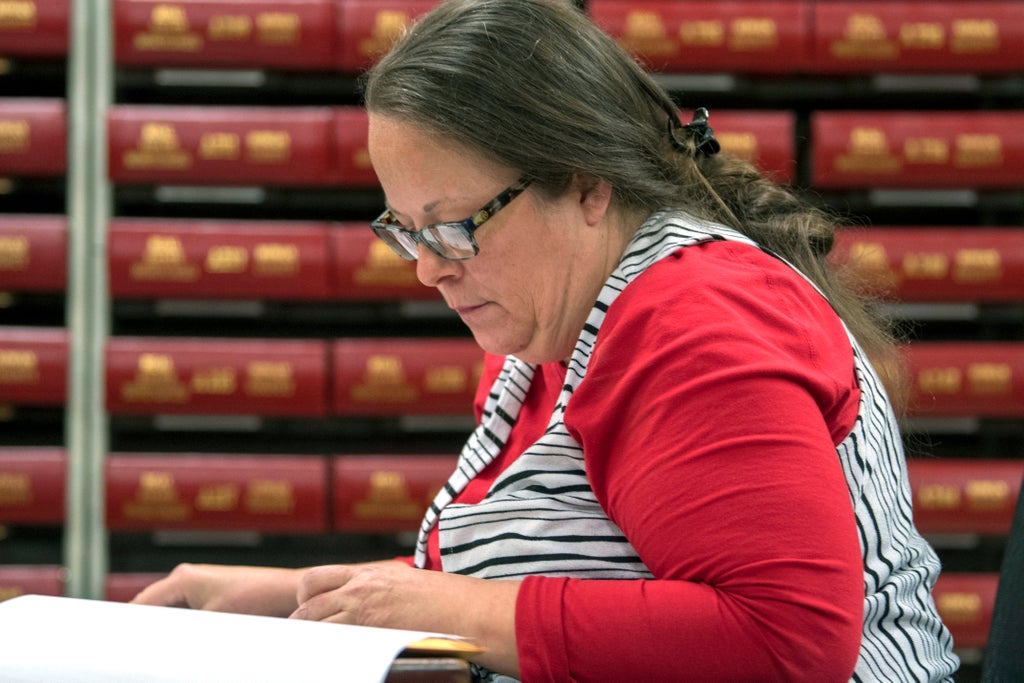
Attorneys for a former Kentucky clerk who wouldn't issue marriage licenses to two same-sex couples have appealed a federal court ruling that she violated the couples' constitutional rights and might have to pay damages.
Kim Davis, former clerk of Rowan County, briefly went to jail in 2015 over her refusal, which she based on her belief that marriage should only be between a man and a woman.
A jury trial will be needed to determine any damages the couples might be owed. A date was not set during a hearing Friday pending the appeal.
Michael Gartland, an attorney for plaintiffs David Ermold and David Moore, said Friday that he expects the trial will be held sometime next year.
“I will be seeking sanctions for filing this frivolous appeal,” Gartland said.
Mat Staver, founder and chairman of Liberty Counsel, the law firm that represents Davis, said in a statement that she “is entitled to an accommodation based on her sincerely held religious beliefs about marriage.”
He said the case will now go to the Circuit Court of Appeals and added it has a “high potential" of reaching the Supreme Court.
U.S. District Judge David Bunning in Ashland wrote in his ruling last month that Davis “cannot use her own constitutional rights as a shield to violate the constitutional rights of others while performing her duties as an elected official.”
Davis, who bases her objection to same-sex marriage on her interpretation of her Christian faith, stopped issuing marriage licenses soon after the 2015 Supreme Court decision in which same-sex couples won the right to marry nationwide.
A judge ordered Davis to issue the licenses, and she was sued by gay and straight couples and spent five days in jail over her refusal.
She was released only after her staff issued the licenses on her behalf but removed her name from the form. The state legislature later enacted a law removing the names of all county clerks from state marriage licenses.
Davis, a Republican, ultimately lost her bid for reelection in 2018. Democrat Elwood Caudill Jr. is now the county’s clerk.
Davis had argued that a legal doctrine called qualified immunity protected her from being sued for damages by couples Ermold and Moore as well as James Yates and Will Smith. The U.S. Supreme Court in October 2020 left in place a decision that allowed the lawsuit to move forward, declining to take the case.







